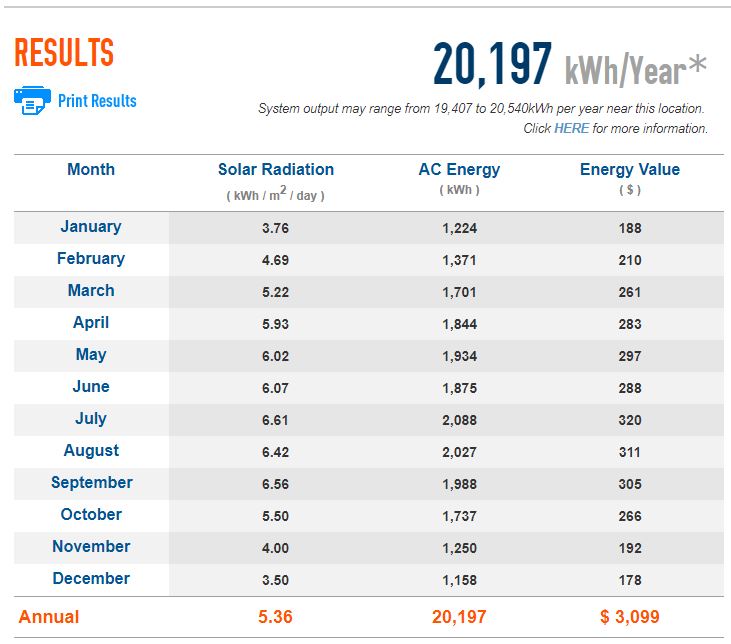I estimated the cost to charge my Bolt at home, so that I could ascertain whether switching to TOU (time-of-usage) rate would be favorable. To my surprise, the calculations indicate that I'd be worse off switching to TOU.
Note: I have only a 110V socket to charge the car, but my belief is that the cost will be the same for any voltage -- only the speed of charging will be different.
Eversource electricity generation rates for eastern Massachusetts are listed here:
www.eversource.com/Content/docs/default-source/rates-tariffs/ema-greater-boston-rates.pdf
I live in metro Boston, and my rate is the default A1 residential rate, so according to the document above, my electricity-generation charge is close to a dime per kWh (kilowatt-hour), give or take. This matches what I see on my electric bill. Also on my electricity bill, I can see that my electricity-delivery charge is also about a dime per kWh, give or take. This amounts to a fixed-rate electricity charge of $0.20/kWh, which stays constant across all seasons and all times of day.
The Bolt's battery capacity is 60 kWh, so the cost for me to charge the entire battery from home (recognizing that this takes many hours at 110V) is 60 kWh * $0.20 / kWh = $12. Paying $12 for a range of 250 miles amounts to 1/3 of what I used to pay for gasoline with my previous ICE, so charging at home is already very favorable under the fixed rate.
Now, if I were to switch to the Eversource TOU rate, which is the A5 residential rate in the document above, then the total charges become:
Summer (June-September): $0.33/kWh peak, $0.15/kWh non-peak
Winter (October-May): $0.25/kWh peak, $0.15/kWh non-peak
Compared to my current fixed rate of $0.20/kWh at all hours, the TOU rate seems very unfavorable. The nighttime price decreases 5 cents, but the daytime price increases 5 to 13 cents. On a 110V line, the maximum amount of battery that I can charge is around 20% of total capacity, so if I charged all night, every night, I would save (60 kwh * 20%) * $0.05/kWh * 7 days/week = $4 per week savings for electric-vehicle charging. Meanwhile, judging from the typical amount of my electric bill, my daytime charges would go up by at least $3-$8 per week (depending on the season). The less frequently I charge the car at home, the worse the imbalance becomes.
The upshot is that it seems I'll do much better staying on a fixed rate rather than switching to TOU.
Has anyone found that switching to TOU rate worked in their favor?
Note: I have only a 110V socket to charge the car, but my belief is that the cost will be the same for any voltage -- only the speed of charging will be different.
Eversource electricity generation rates for eastern Massachusetts are listed here:
www.eversource.com/Content/docs/default-source/rates-tariffs/ema-greater-boston-rates.pdf
I live in metro Boston, and my rate is the default A1 residential rate, so according to the document above, my electricity-generation charge is close to a dime per kWh (kilowatt-hour), give or take. This matches what I see on my electric bill. Also on my electricity bill, I can see that my electricity-delivery charge is also about a dime per kWh, give or take. This amounts to a fixed-rate electricity charge of $0.20/kWh, which stays constant across all seasons and all times of day.
The Bolt's battery capacity is 60 kWh, so the cost for me to charge the entire battery from home (recognizing that this takes many hours at 110V) is 60 kWh * $0.20 / kWh = $12. Paying $12 for a range of 250 miles amounts to 1/3 of what I used to pay for gasoline with my previous ICE, so charging at home is already very favorable under the fixed rate.
Now, if I were to switch to the Eversource TOU rate, which is the A5 residential rate in the document above, then the total charges become:
Summer (June-September): $0.33/kWh peak, $0.15/kWh non-peak
Winter (October-May): $0.25/kWh peak, $0.15/kWh non-peak
Compared to my current fixed rate of $0.20/kWh at all hours, the TOU rate seems very unfavorable. The nighttime price decreases 5 cents, but the daytime price increases 5 to 13 cents. On a 110V line, the maximum amount of battery that I can charge is around 20% of total capacity, so if I charged all night, every night, I would save (60 kwh * 20%) * $0.05/kWh * 7 days/week = $4 per week savings for electric-vehicle charging. Meanwhile, judging from the typical amount of my electric bill, my daytime charges would go up by at least $3-$8 per week (depending on the season). The less frequently I charge the car at home, the worse the imbalance becomes.
The upshot is that it seems I'll do much better staying on a fixed rate rather than switching to TOU.
Has anyone found that switching to TOU rate worked in their favor?














